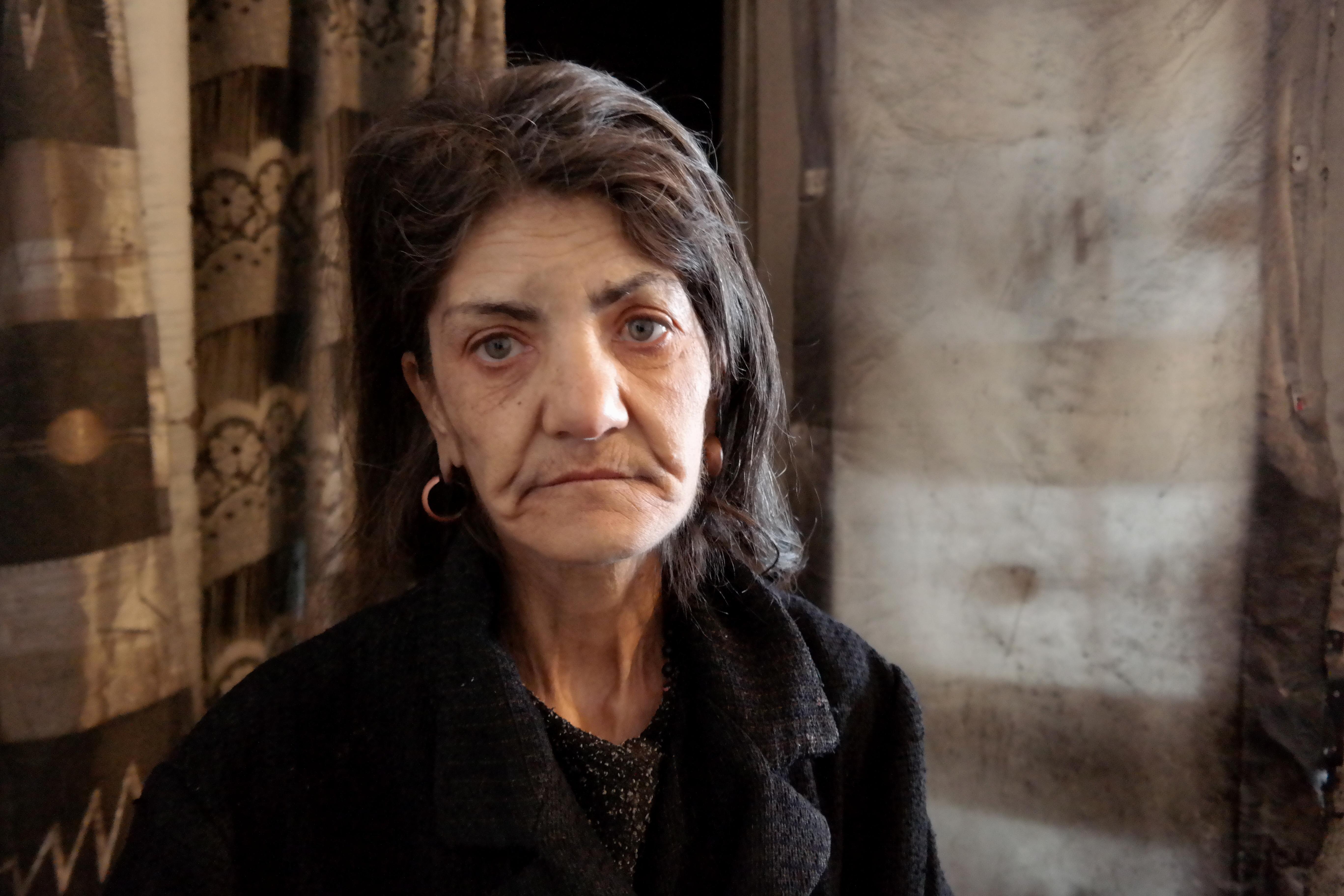
Knarik Sahakyan: Living Alone in Gyumri on the Charity of Strangers
The woman standing in the dark corridor carefully looks at the three of us and then turns to me.
"I know you, you ..." Her face tightens, trying to remember. “You, you are Karineh."
"No". I shake my head. "I'm not Karineh. We do not know each other."
"No, wait. I know you for sure. I just don’t remember your name," she responds.
I smile. We wait on the brightly lit staircase. She remains in the dark hallway of the apartment. The door is open, but we haven’t yet received an invitation to enter.
“No, she isn’t Gayaneh either, dear Knarik. You will see her for the first time, but you remembered me, no? I came during the day. I said I’d bring the electric hot plate in the evening. We brought it.”
Ashot shows the heater he’s holding but Knarik remains lost in her memories. Her eyes shine upon hearing the word heater. Instead of answering, she turns to me again.
“Yes, come in. I know you from somewhere, but I can’t place you. It’s your hair. I’ve seen it somewhere. Didn’t you sell flowers. Didn’t you sew pretty things?”
I shrug. I say, as far as I can remember, I was engaged in journalism. I tell her I don’t understand what she’s saying.
“You look like the actress Terekhova. Do you know her?”
Knarik smiles. We ask her to turn on a light to navigate the darkness. The hallway is short. A few more steps and we find ourselves in a small square space Knarik calls a kitchen. It might have served as a kitchen years ago. The only thing reminiscent of that, the sink, is still in place. The small room has no cupboard, no table, no chairs, no stove. Nothing resembling a kitchen. There are instant coffee boxes near the wall, maybe twenty. I think she collected them from the trash, but for what purpose? In one corner I notice an oil-fired and a small, refillable gas stove, probably both empty.
There are dry foodstuffs in three plastic bags on the floor: pasta, vegetable oil, eggs, bread sugar. Ashot says he saw the packages when he visited during the day. Someone else probably brought them. We ask Knarik why she hasn’t eaten anything.
"I'm not a big eater." Knarik's gaze wanders. “I do not like oil, I eat butter.
We enter a space that Knarik uses as a living room and bedroom. The same black, smoke-stained walls and ceiling. The same yellow, dim light bulb. There are two beds in the room. One of them, as far as we understand, serves as a cabinet. Knarik sleeps on the other. A red coat is draped on the back of the bed. Items on the other bed have been covered with a crocheted tablecloth.
"I’ve sewn all of them. Aren’t they beautiful?” Knarik asks, rubbing her hands.
In the gloom it’s difficult to tell. The 58-year-old woman, physically no more than skin and bones, resembles a ghost. I stare at her blackened, bony fingers. I notice traces of red nail polish on her nails, which hints at a woman's unquenchable desire to look beautiful. I ask permission to photograph her.
"Yes. But let me put on my earrings. I love to wear them," she says and quickly removes her hat.
As she bends over, I notice a torn earlobe. I want to ask what happened, but instead say she has nice earrings. Knarik's face brightens.
“They’re iron, nothing special. I also had gold ones. I love beautiful things,” says Knarik, smiling. I like to wear nice things, visit beautiful places. I mean, I haven’t always lived like this.”
Ashot tries to turn on the stove. I give Knarik the warm socks and tights I bought. The woman gives a half-hearted thank you. Her mind’s on the electric plate. I ask if she’s ever been married. She has. What about children, I ask.
“I have a son, born in 1988.”
“Does he visit you?”
Knarik frowns and turns around. I realize she doesn’t like answering personal questions, but I try to cull more information. Has her son abandoned her? Knarik bites her lips. She says there’s a sister in the village of Horom. Ashot fixes the electric plate’s socket and turns it on. He tells Knarik how to use it. We urge the woman to keep it on, promising to pay the electric bill.
I first visited Knarik Sahakyan on January 24. I went with Gyumri painter Ashot Hakobyan who read about the woman on the Facebook page of Susanna Isahakyan, President of the "Unity for Armenians" charitable NGO. Ashot decided to assist the woman by providing money and an electric stove.
Returning from my evening visit, I posted a few photos and a short news item on my Facebook page the same day.
The first response came from Armineh Mkhoyan, a representative of the Caritas Armenian Charitable NGO, who promised to discuss the issue with organization’s board and see how they might help.
I next visited Knarik Sahakyan, who lives at 18A Manushyan Street in Gyumri, on January 27. I went with Armineh Mkhoyan.
Rita Khachatryan, a fourth-floor resident, invited us in. The eighty-year -woman told us that Sahakyan and her husband had lived in the building since 2001.
‘The husband was lively guy who was well liked but I did not know him. When the man died, they said he lost his mind. They have two children, a boy and a girl, but they don’t keep in touch. We don't know who to turn to. They should take her to an old age home. They’ll take care of her, and she’ll get hot meals," says Mrs Khachatryan.
Mrs. Khachatryan tells us that building residents often complain to her that Knarik speaks at the top of her voice. Neighbors assume that a bunch of people are fighting in the apartment.
I suggest that maybe Knarik talks to herself in an attempt not to go crazy from the loneliness.
“I don’t know what to do. I’m neither her relative nor her friend. I do what I can, but she needs to see a psychologist. She hasn’t received state assistance for several months. I’m surprised how she gets by. Once, she left the water running, flooding the downstair apartment. They complained and the police came. But calling the cops every time isn’t the answer. The municipality or the regional administration must get involved,” says Mrs. Khachatryan.
Armineh Mkhoyan, Mrs. Khachatryan and I go up to the fifth floor to give Knarik the hygiene and cleaning items provided by Caritas. Armineh asks Knarik for her last electricity payment receipt. They need it to hand over 40,000 drams on January 31 (already transferred - author). It turns out that we are not the only ones visiting Knarik.
Susanna Isahakyan, President of the "Unity for Armenians" NGO, and an unknown benefactor had brought several bags of dry food, bedding and hygiene items.
Isahakyan says postal employees alerted her about Knarik She also believes a psychologist must be called in and that the apartment needs a thorough cleaning.
Knarik pays no attention to the items visitors have brought. She perks up, though, when she hears someone’s brought sausage, butter and coffee.
She frowns on the vegetable oil and frozen chicken. "Take them out. I will not eat them."
Knarik tells us to place the bedding – the linen, pillow and blanket - brought by the unknown benefactor on the old ones.
"I will remove the old stuff later," Knarik says.
"Dear Knarik, maybe you can remove it now. We’ll bring more later,” we say, trying to persuade her.
“No. Why should I throw them away? I’ll wash them,” says Knarik, shaking her head like a stubborn child.
"Do you at least remember the last time you bathed?" I tried to break the woman's resistance for the last time.
Knarik stares at me with blue, watery eyes. My question remains unanswered.
 Videos
Videos Photos
Photos
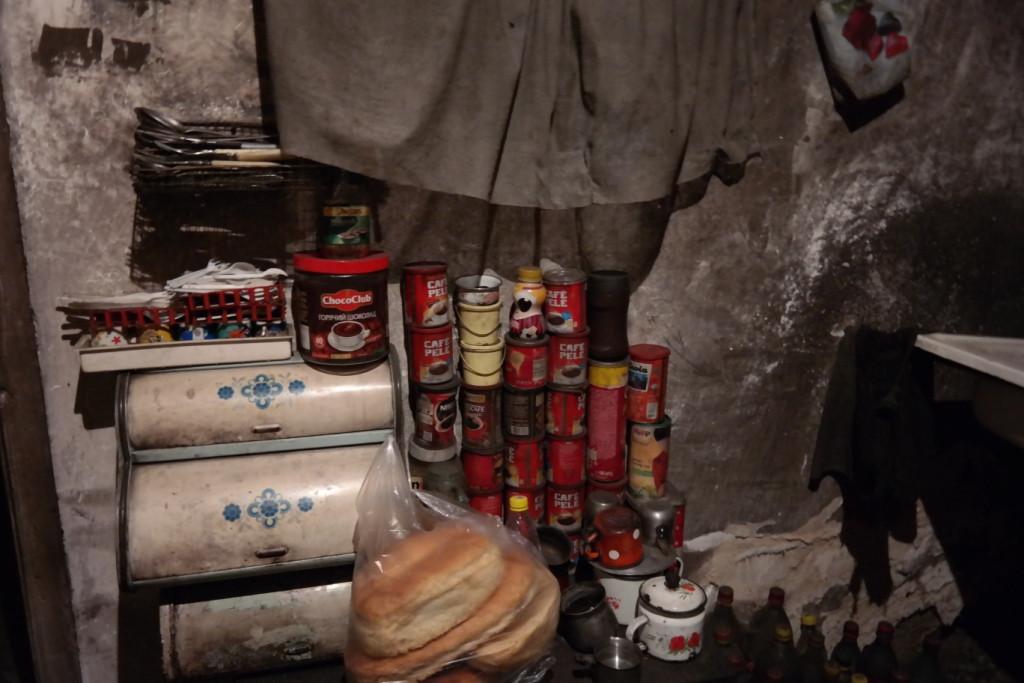
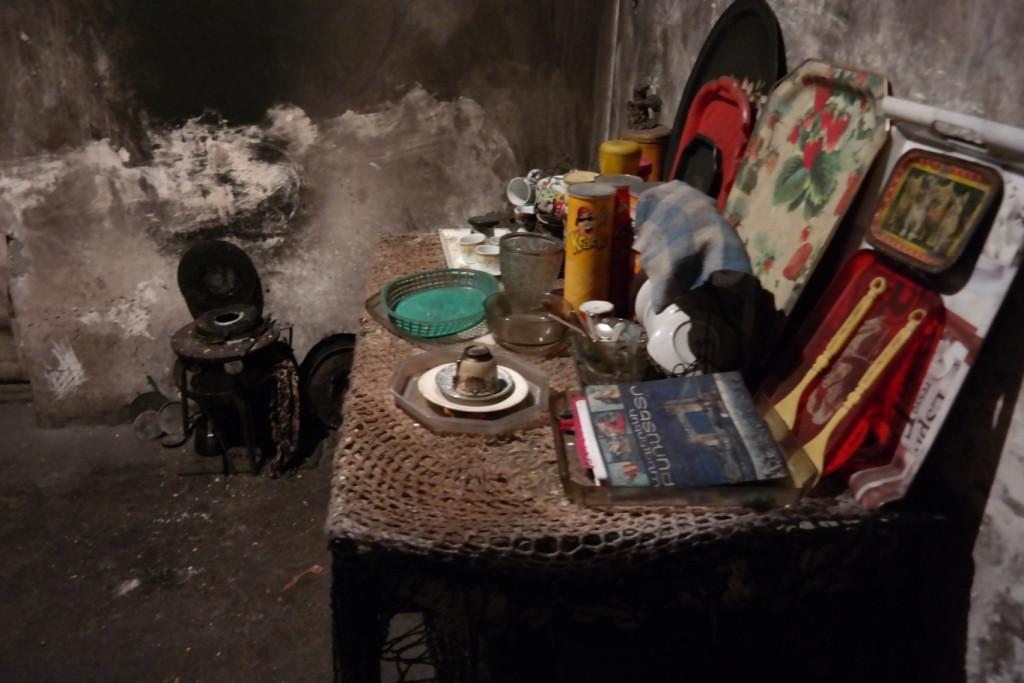
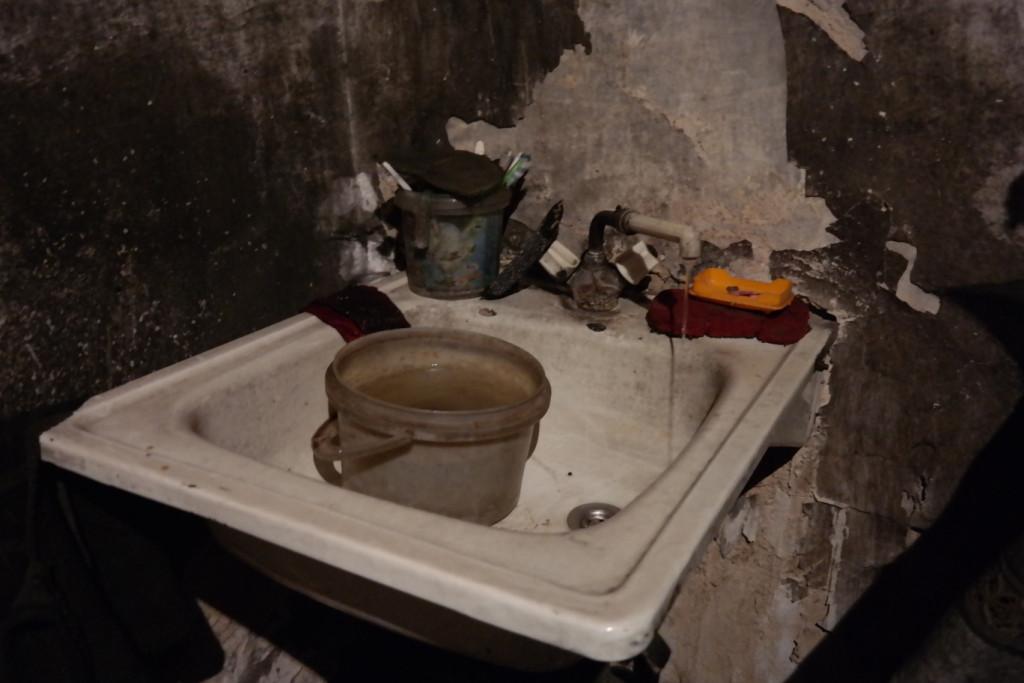
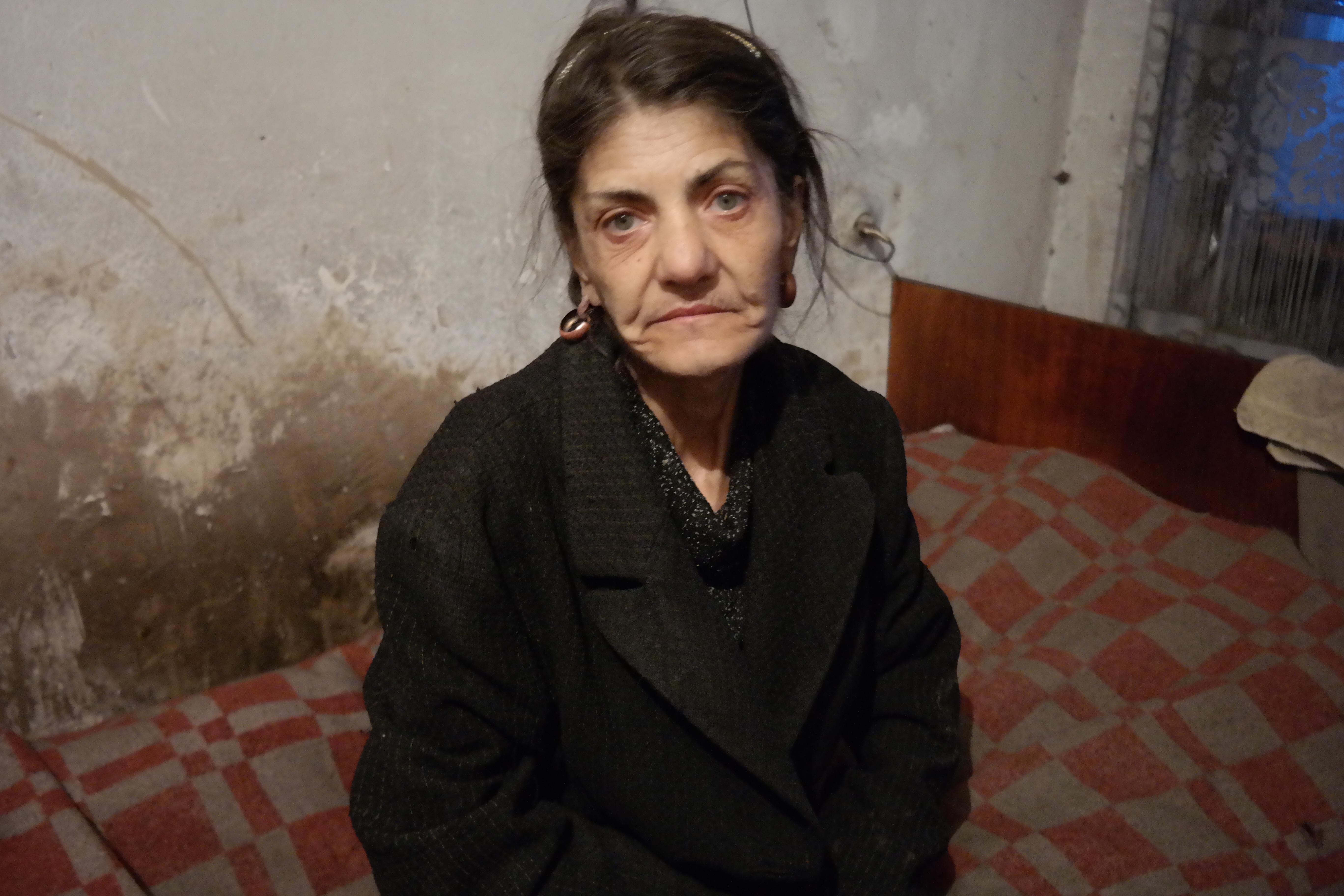
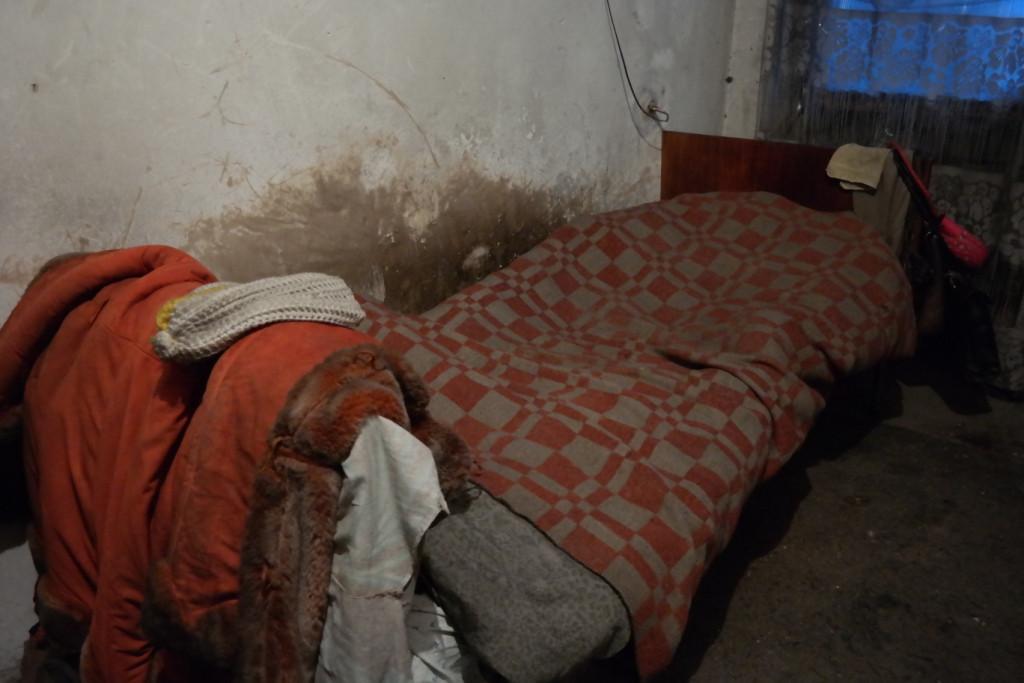
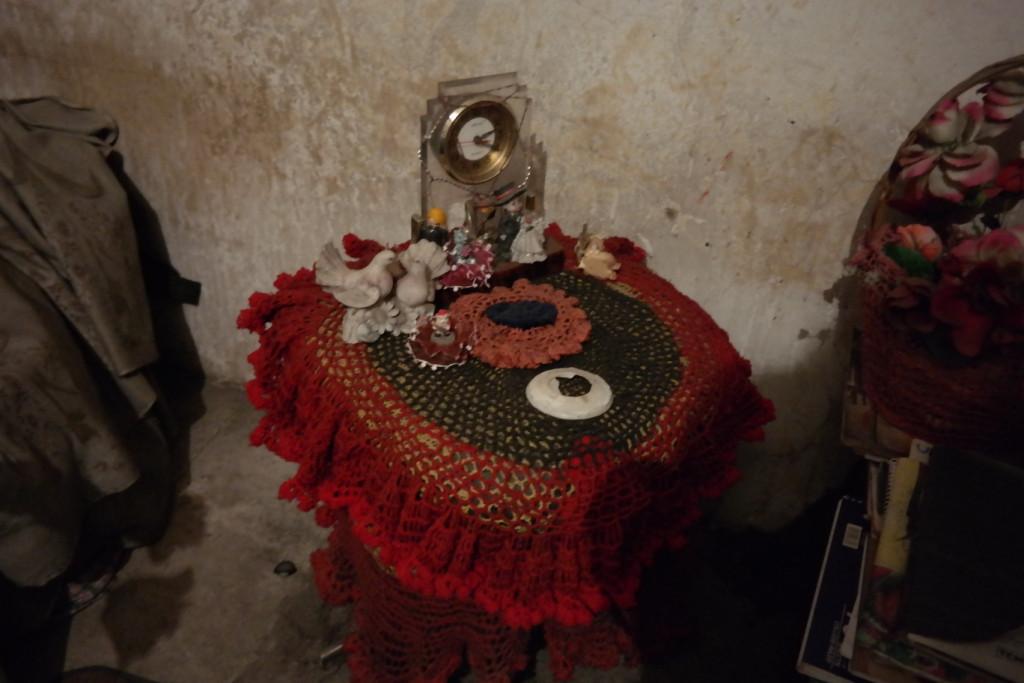
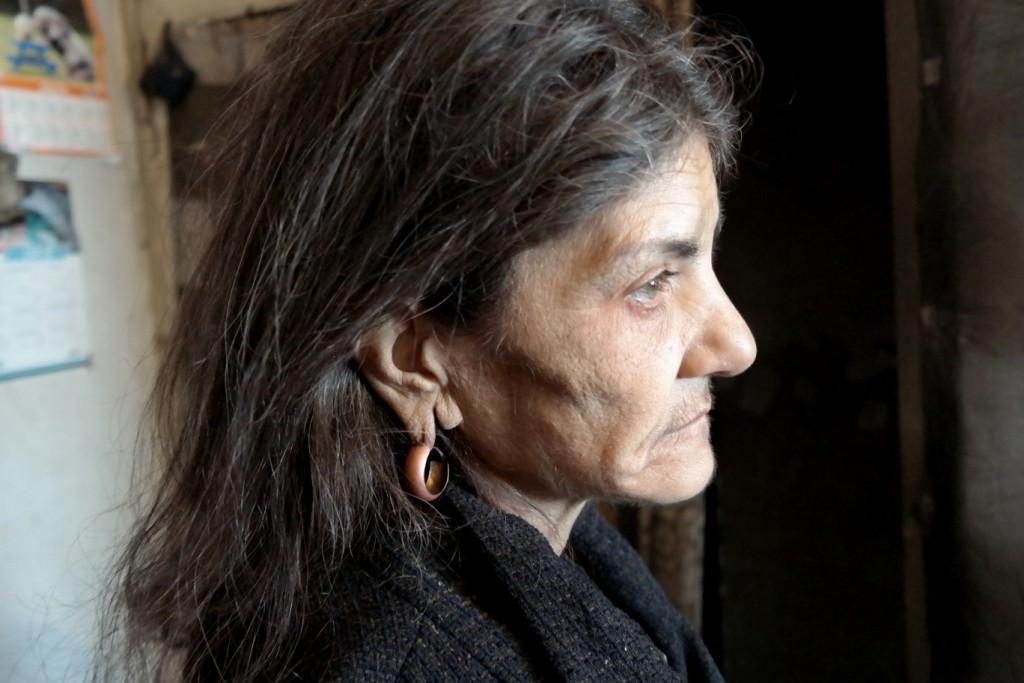
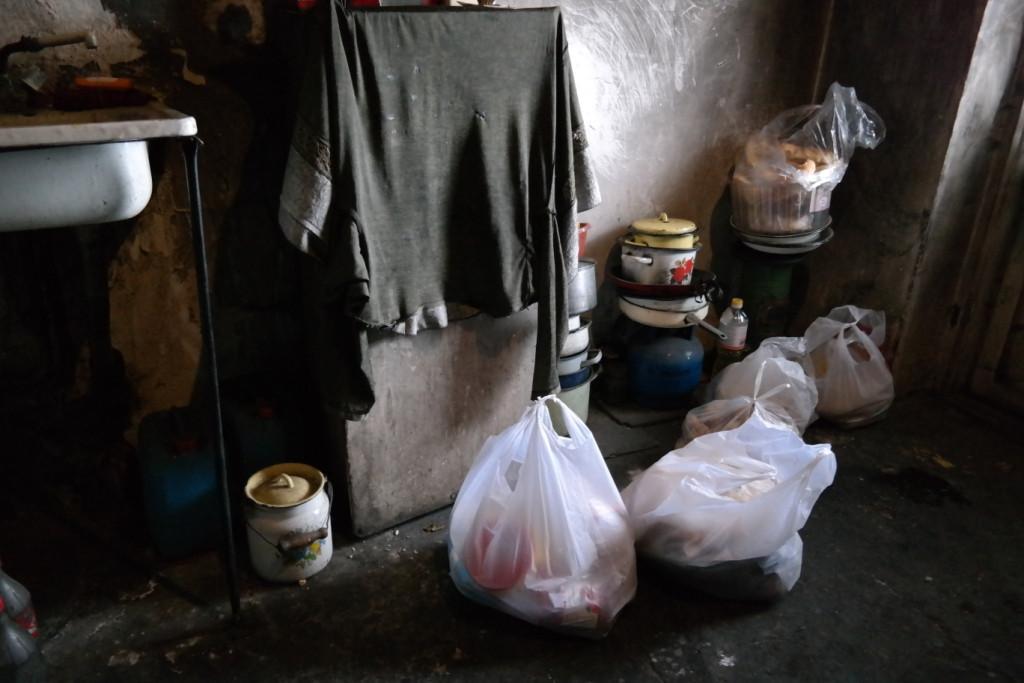
Comments (2)
Write a comment